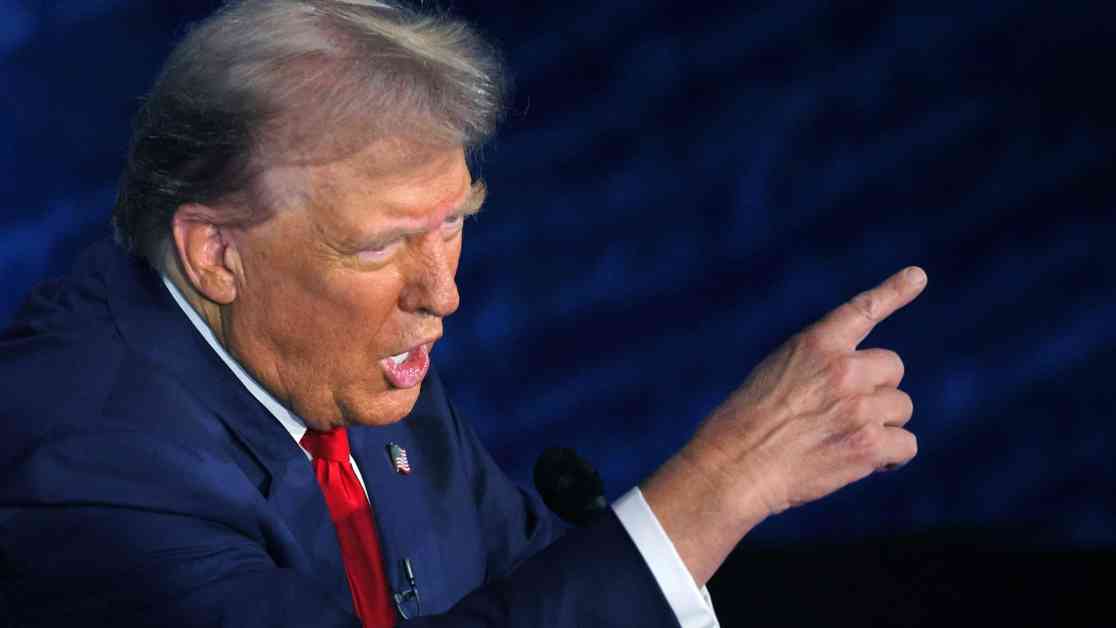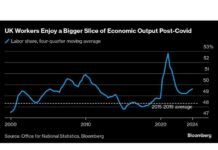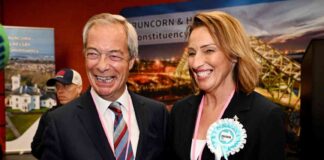Senate Finance Chair Slams Trump’s Tax-Free Overtime Plan as Deceptive and Unrealistic
Senate Finance Committee Chair Ron Wyden did not mince words when criticizing Republican presidential nominee Donald Trump’s latest campaign promise to eliminate income taxes on overtime pay. Wyden, a Democrat from Oregon, called out Trump’s proposal as fraudulent and insincere, stating that it is merely a desperate attempt to gain support as the election approaches.
Wyden’s Critique of Trump’s Tax Proposal
In a scathing statement, Wyden accused Trump of resorting to fake tax proposals out of desperation, likening them to the artificial appearance of Trump’s tan. The senator pointed out that Trump’s sudden concern for working people is nothing but a charade, given his track record of undermining overtime protections for workers during his time in office.
Wyden emphasized that Trump’s proposal to eliminate income taxes on overtime pay is a hollow promise, designed to mislead and manipulate workers for political gain. He criticized Trump for treating hard-working Americans as pawns to be swayed by empty campaign promises, highlighting the disconnect between Trump’s rhetoric and his actions as president.
Trump Campaign’s Response
In response to Wyden’s criticism, Trump campaign spokesman Steven Cheung defended the tax-free overtime proposal, arguing that it aims to benefit hard-working Americans by putting more money in their pockets. Cheung accused Wyden of disrespecting everyday Americans and attempting to thwart efforts to provide tax relief for working families.
Cheung also took a swipe at Wyden’s track record, labeling him as a “loser” with a history of persecuting ordinary Americans. The exchange between Wyden and the Trump campaign underscores the contentious nature of the debate surrounding tax policy and economic initiatives in the lead-up to the election.
Trump’s Unveiling of the Tax-Free Overtime Proposal
Trump unveiled his proposal to eliminate income taxes on overtime pay during a campaign rally in Tucson, Arizona, marking a significant departure from his previous tax policy announcements. The president’s pledge to make overtime hours tax-free for workers beyond the standard 40-hour workweek was met with both skepticism and scrutiny from critics.
While Trump touted the proposal as a boon for workers, critics like Wyden and others questioned the feasibility and impact of such a tax policy change. The timing of the announcement, coming after a contentious debate with Democratic nominee Vice President Kamala Harris, raised questions about the sincerity and substance of Trump’s economic proposals.
Analysis of Trump’s Tax Proposals
Trump’s tax plan, which includes eliminating income taxes on overtime pay, is just one component of his broader economic agenda. The president has also promised to cut or erase various other taxes if re-elected, such as exempting income taxes on workers’ tips and seniors’ Social Security benefits, and increasing tax breaks for families with newborn children.
However, experts have raised concerns about the potential impact of Trump’s tax proposals on the federal deficit and overall economic growth. The Penn Wharton Budget Model projected that Trump’s tax plan could lead to a significant increase in deficits over the next decade, raising questions about the sustainability of such tax cuts in the long term.
Comparative Analysis of Economic Policies
In contrast to Trump’s economic agenda, Democratic nominee Kamala Harris has put forth her own set of economic policies aimed at boosting job growth and providing financial relief to working families. Analysts at Goldman Sachs have suggested that Harris’ economic proposals may lead to a stronger economic boost and job growth compared to Trump’s plans, highlighting the divergent approaches to economic policy between the two candidates.
The debate over tax policy and economic initiatives has become a focal point of the presidential campaign, with voters weighing the potential impact of each candidate’s proposals on their financial well-being and the broader economy. The contrasting visions presented by Trump and Harris underscore the ideological divide on key economic issues facing the country.
Potential Consequences of Tariffs and Trade Policies
One key aspect of Trump’s economic platform revolves around imposing tariffs on imports as a means of generating revenue and protecting domestic industries. While Trump has touted tariffs as a way to boost American manufacturing and create jobs, economists caution that such measures could lead to higher consumer prices and disrupt global trade relations.
The potential consequences of Trump’s trade policies, including tariffs and trade tensions with key trading partners, have raised concerns about the overall impact on the economy and international relations. As the election approaches, the debate over trade policy and its implications for economic growth and stability remains a pivotal issue for voters and policymakers alike.
Conclusion
The clash between Senate Finance Chair Ron Wyden and the Trump campaign over the tax-free overtime proposal highlights the contentious nature of tax policy and economic initiatives in the current political landscape. As the election draws near, voters will have to weigh the competing visions of Trump and Harris on key economic issues, including tax policy, trade, and job growth. The outcome of the election will ultimately shape the direction of economic policy in the United States for years to come.






















